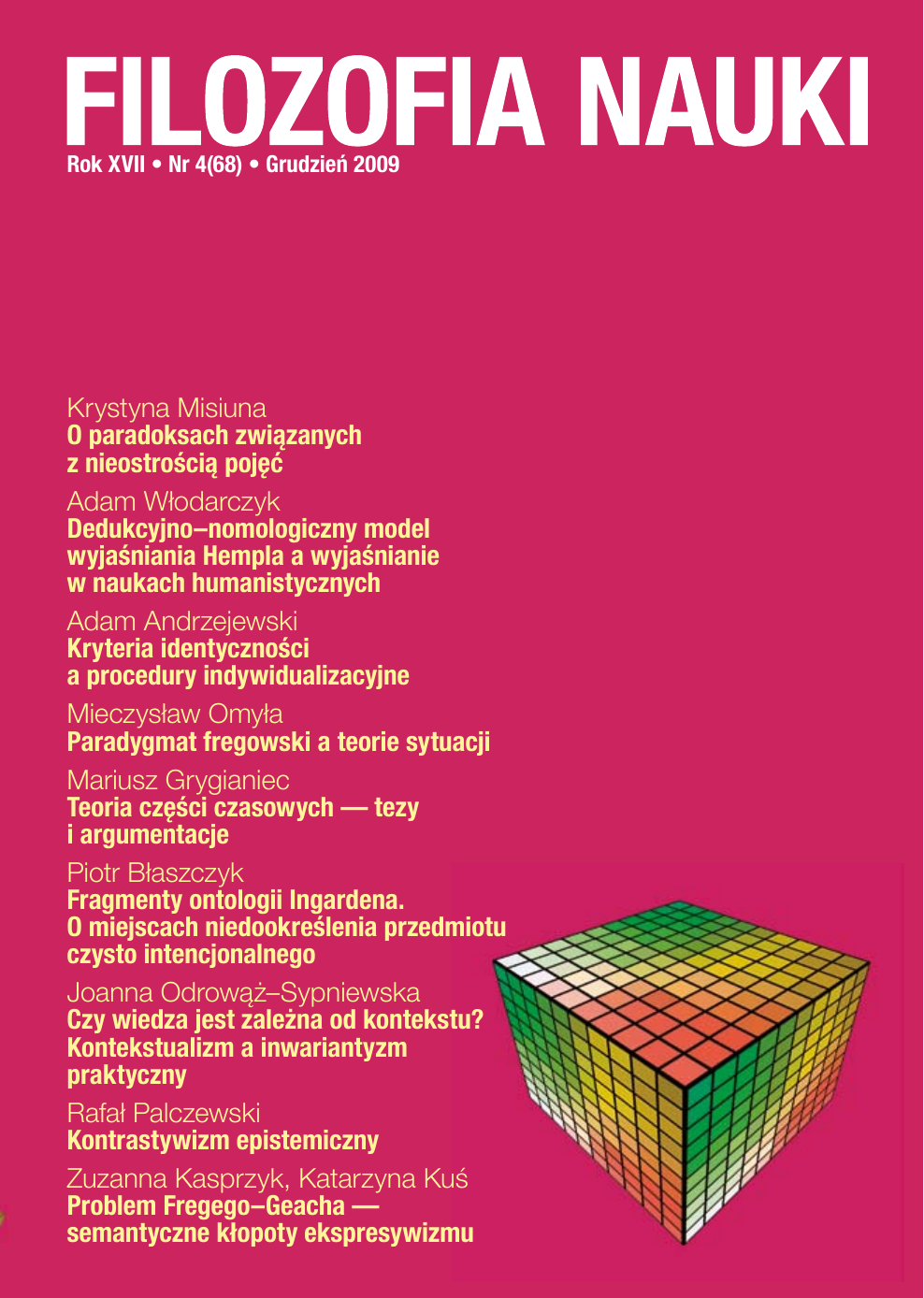Dedukcyjno-nomologiczny model wyjaśniania Hempla a wyjaśnianie w naukach humanistycznych
Słowa kluczowe:
explanation, naturalism, antinaturalism, d-n model of explanation, generalizationAbstrakt
The starting point of the article is claim, that the well-known distinction between natural sciences as explaining and human sciences as interpreting made by W. Dilthey and distinction between idiographic and nomothetic sciences made by H. Rickert are both inadequate at present. Human sciences separate their research areas using logics and statistics and formulating many generalizations and even laws. So it can be argued that they can give explanations sensu stricto. First part of the article describes contemporary controversy naturalism-antinaturalism in formulation of M. Salmon, who presents the third middle way, that some human science as linguistics or evolutionary psychology can give causal explanations without appealing to human reasons as causes. This standpoint, however, can lead to reductionism and necessity of separating in each human science some kind of "scientific core", which seems to be undesirable. Second part of the article presents possible applications of the D-N model of explanation of C. G. Hempel in human sciences, which is connected with well-known controversy whether these sciences formulate any laws (especially history but also linguistics for example). Leaving out, however, this important question and accepting statement proposed by J. Such, that some generalizations can serve as a premises in D-N arguments, we can claim that some D-N explanations are possible also in human sciences.Pobrania
Opublikowane
2009-12-01
Jak cytować
Włodarczyk, A. (2009). Dedukcyjno-nomologiczny model wyjaśniania Hempla a wyjaśnianie w naukach humanistycznych. Filozofia Nauki, 17(4), 11–22. Pobrano z https://www.fn.uw.edu.pl/index.php/fn/article/view/583
Numer
Dział
Artykuły















 Filozofia Nauki | ISSN 1230-6894 | e-ISSN 2657-5868
Filozofia Nauki | ISSN 1230-6894 | e-ISSN 2657-5868